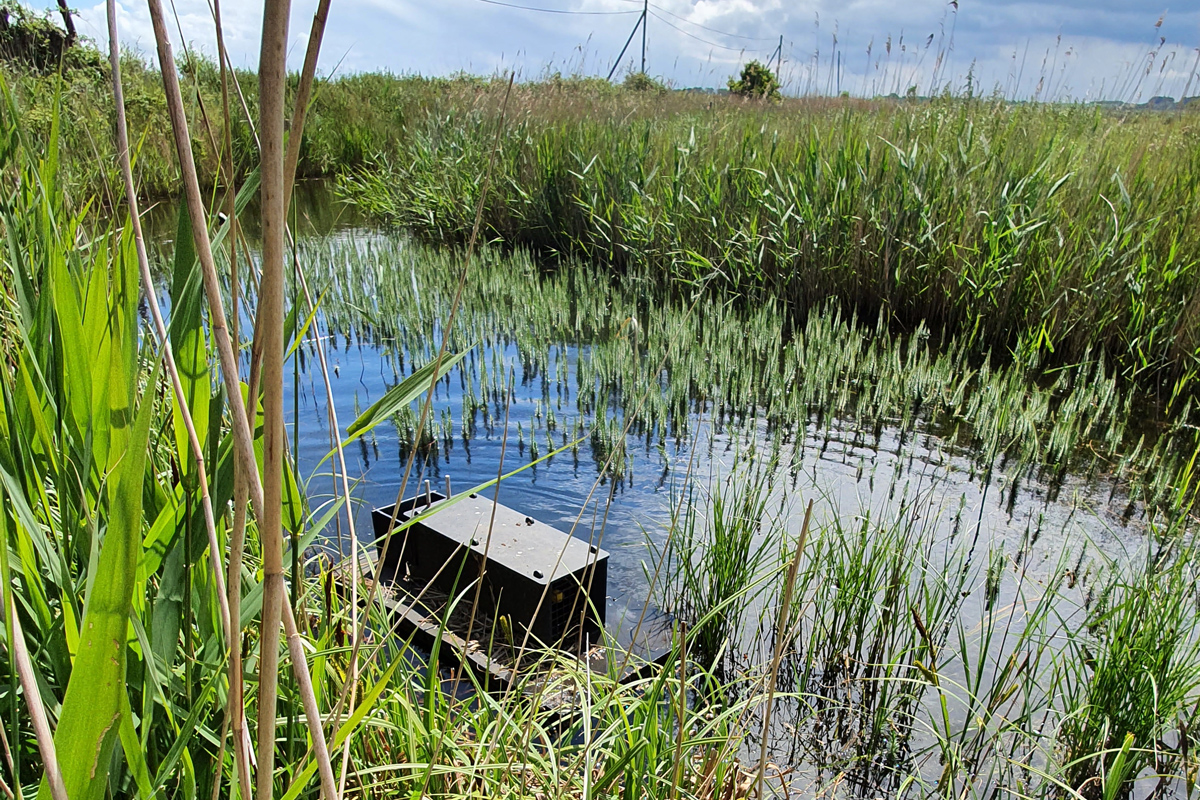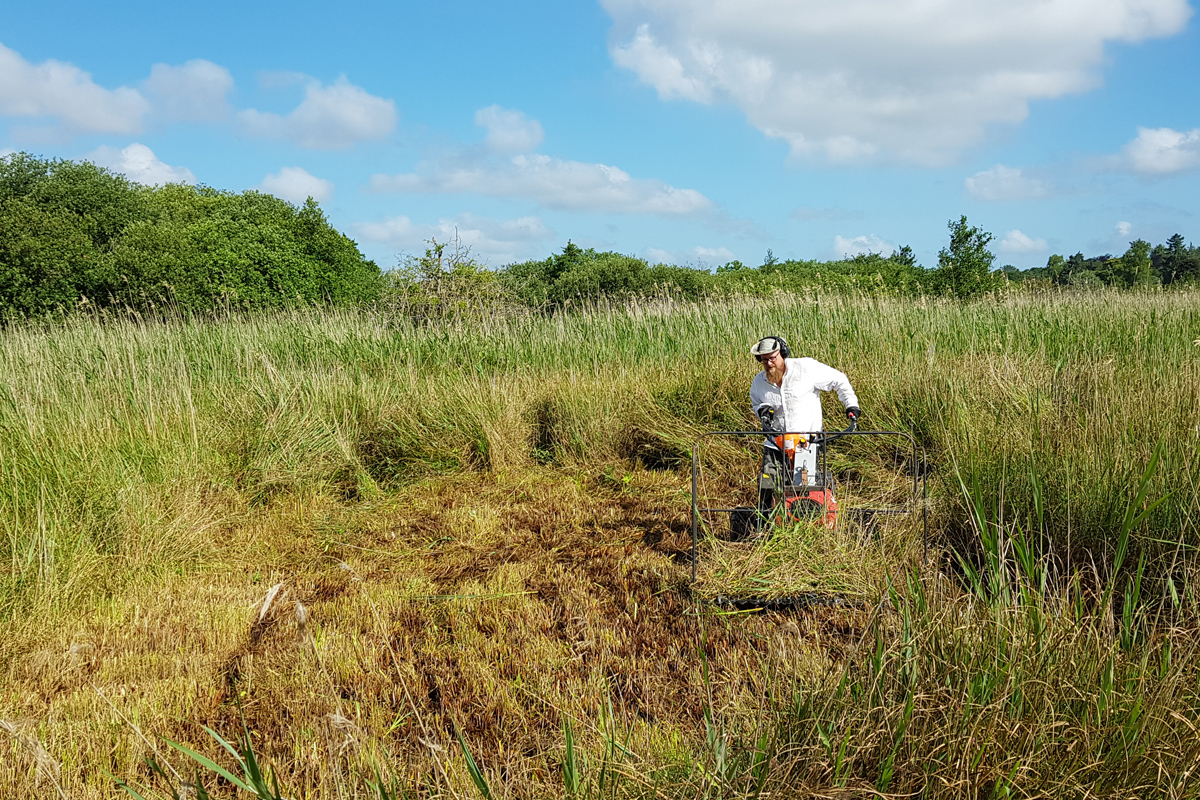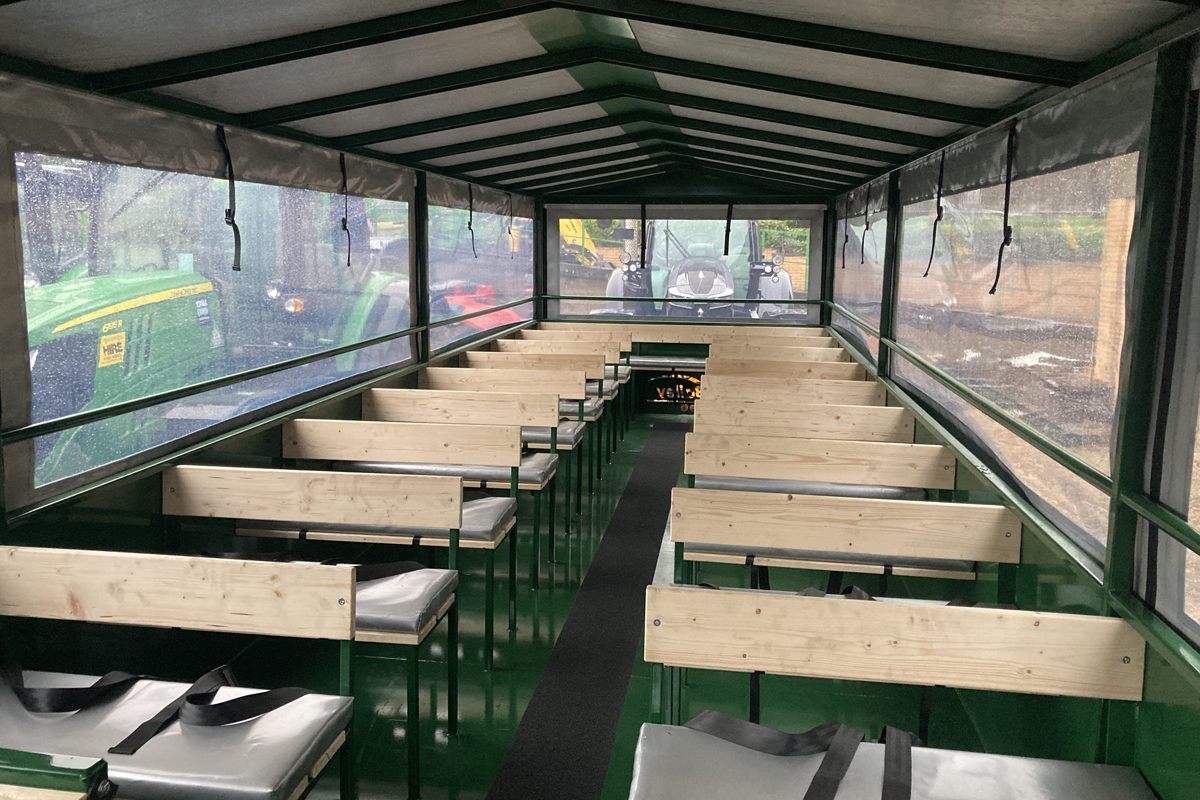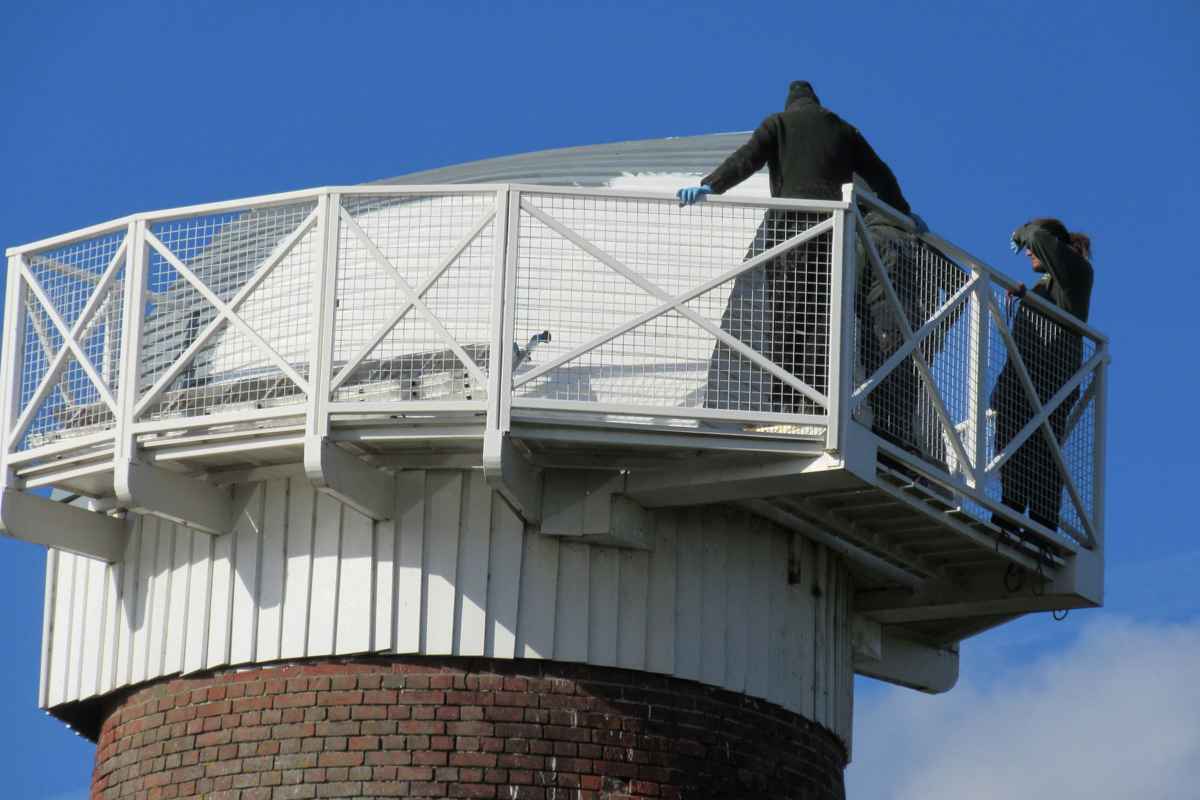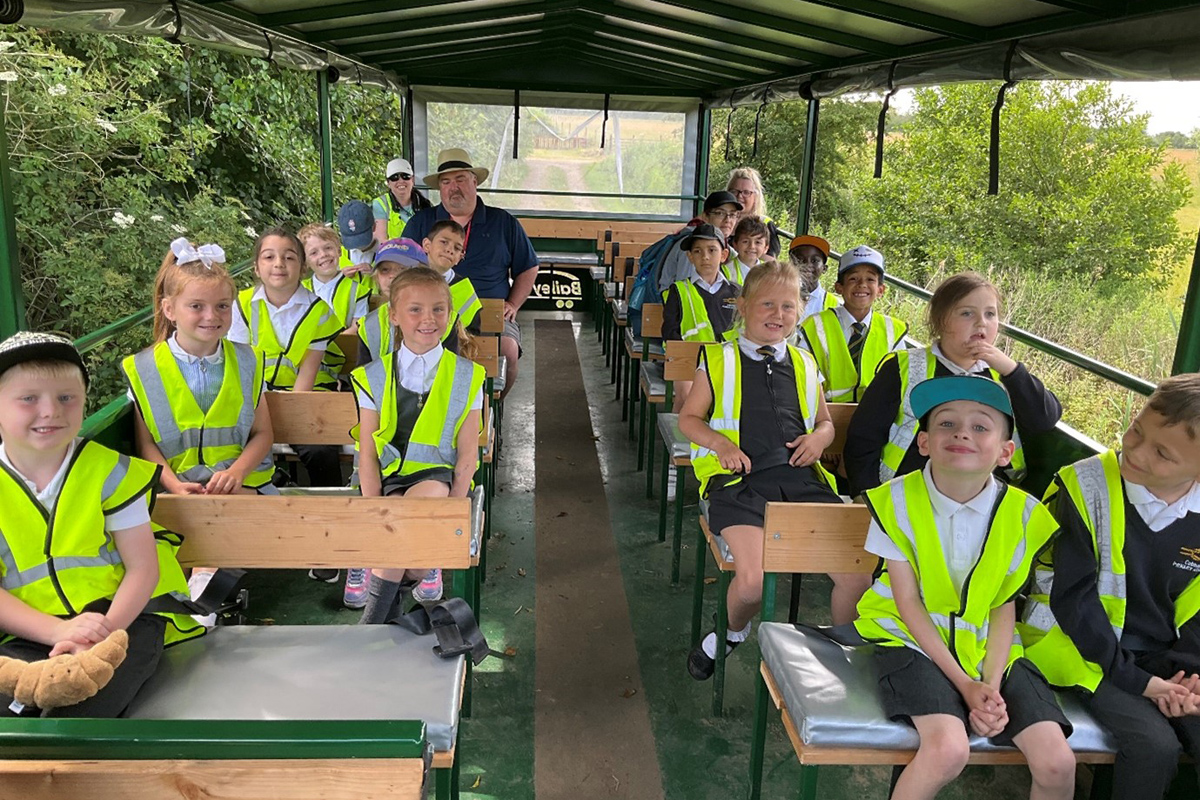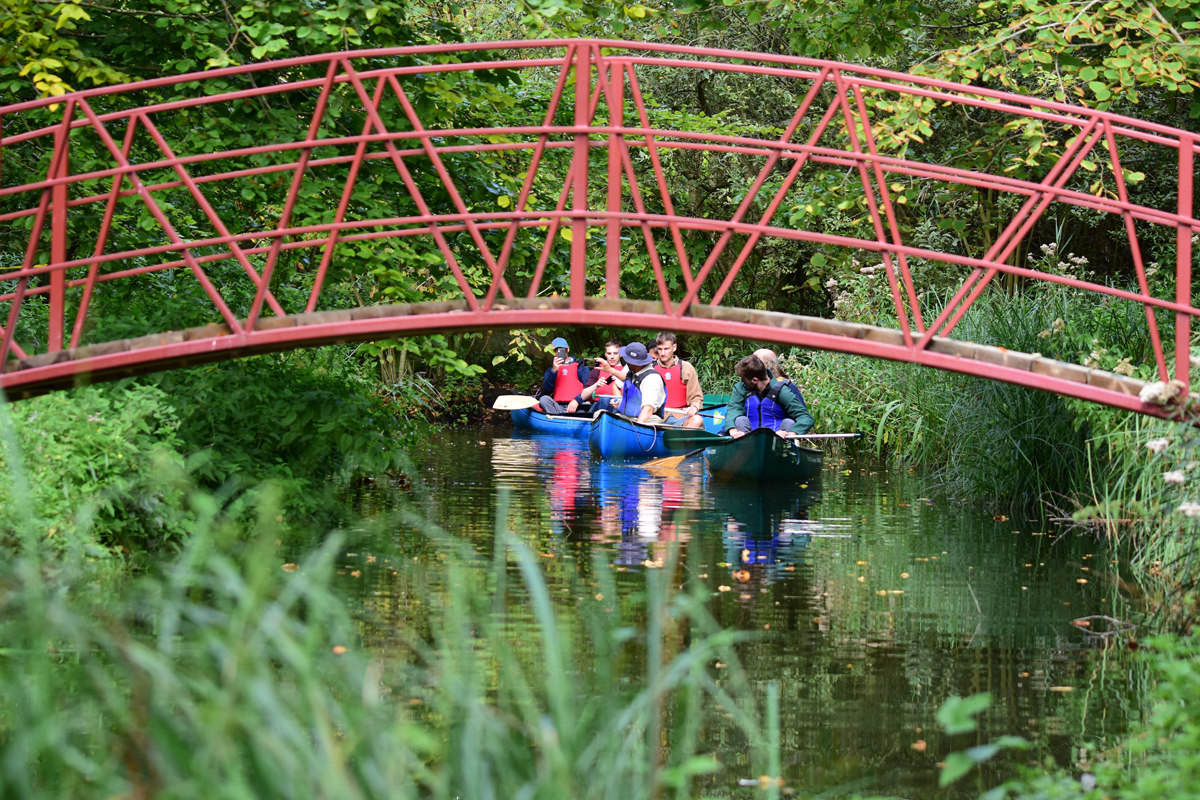Case studies
This page documents a number of case studies from the Farming in Protected Landscapes (FiPL) programme that have helped to meet the Broads Plan objectives and DEFRA's aims.
Waterlife Recovery Trust
In 2021, The Broads Farming in Protected Landscapes programme awarded Waterlife Recovery East a grant of £3,500, with a further £3,500 coming from the Norfolk Coast AONB Farming in Protected Landscapes scheme to fund a project officer and 30 smart rafts to control American Mink.
American Mink are a highly damaging invasive species in the UK. Their impact has had a detrimental effect on water vole populations, as well as many bird species. Water vole are classified as endangered as per the red list of British mammals and are a priority species under the UK Biodiversity Action Plan. Entire populations are often wiped out by mink, thus control is needed to protect this native species.
FiPL funding contributed to the deployment of smart rafts around the Broads and Broadland Catchment. The rafts shut a trap door when animals are caught, which triggers a text to a volunteer, who inspects the trap and releases anything other than mink back into the wild. After a recent increase in water vole numbers, many mink traps are now fitted with a special excluder, stopping water voles and birds entering.
Since the start of this project in December 2021, 241 new smart rafts have been deployed in the project area, and the project officer has been able to engage with over 300 volunteer farmers and landowners. The Farming in Protected Landscapes programme continued to fund the project officer into 2022 at a cost of £15,975, enabling the important work to continue. During the first two-and-a-half years, almost 300 mink were caught around the River Wensum in Norfolk.
Waterlife Recovery East now has an ambitious goal to eradicate mink in the project area, providing a blueprint for other areas around the UK. If achievable, this would be a long-term solution to prevent the destruction of native wildlife.
Reed and sedge cutting industry
The Farming in Protected Landscapes officers work closely with the members of the reed and sedge cutting industry to identify opportunities to revitalise their reed cutting business. The grant scheme allows us to support people who meet the criterion set out in the FiPL themes, but are not commonly recipients of grants from Defra.
Reed and sedge cutting is an important traditional industry in the Broads, contributing to almost all the UK produced water reed for thatching. Cutting is vital for maintaining the Broads unique landscape, as well as providing a habitat for many flagship species. The Broads Authority Action Plan highlights the importance of supporting the local profession, not only to enhance areas of wetland habitats to protect carbon sinks, but to also promote a traditional industry inherent to the area.
To date we have funded 14 projects that support the reed and sedge cutters of the Broads, at a total of £85,885.63. The projects have encompassed a wide range of activities, including new cutting equipment, training courses, and the development of the Broads Reed and Sedge Cutting Association website. Supporting the industry has allowed FiPL to deliver projects that expand across all 4 of the key themes of the scheme.
FiPL grants have contributed to both the enhancement of wetland habitats, as well as supporting local, nature friendly businesses. This has a long-term effect for both the economy of the area, as well as ensuring that the land is more resilient to climate change. With the opportunity for more cutters to enter the industry and develop their knowledge of wetland habitats, it enhances the longevity of the trade as well as promotes the re-wetting of drained areas. By encouraging the management of wetted landscapes, there is a greater opportunity for adaptation to climate change.
People-carrying trailer
A Farming in Protected Landscapes grant was awarded to a farmer in the Broads for equipment to carry out accessible farm visits for school children and the wider community, diversifying access for a wider audience.
The project involved the funding of a people-carrying trailer, to be towed behind one of the farm tractors. The farmer owns a farm with over 100 hectares and was aware that the distance the children needed to walk was too far, and excluded those with disabilities. Consequently, the use of the trailer on the farm enhances and diversifies school visits and public access during organised events.
The trailer has enabled increased engagement with the local community. The farmer hosted a visit from the local church group and the trailer meant that they were able to visit areas of the farm which would otherwise have been inaccessible. The success of the educational visits can be shown in that the farmer has since completed 10 school visits in 2022, with a further 15 planned for the next school year.
The Farming in Protected Landscapes programme funded 100% of this project as a cost of £14,756. As such, this project directly meets the outcomes set out in the People theme, in that the trailer provides increased opportunities for more diverse audiences to explore, enjoy and understand the Broads landscape.
Tunstead water reservoir
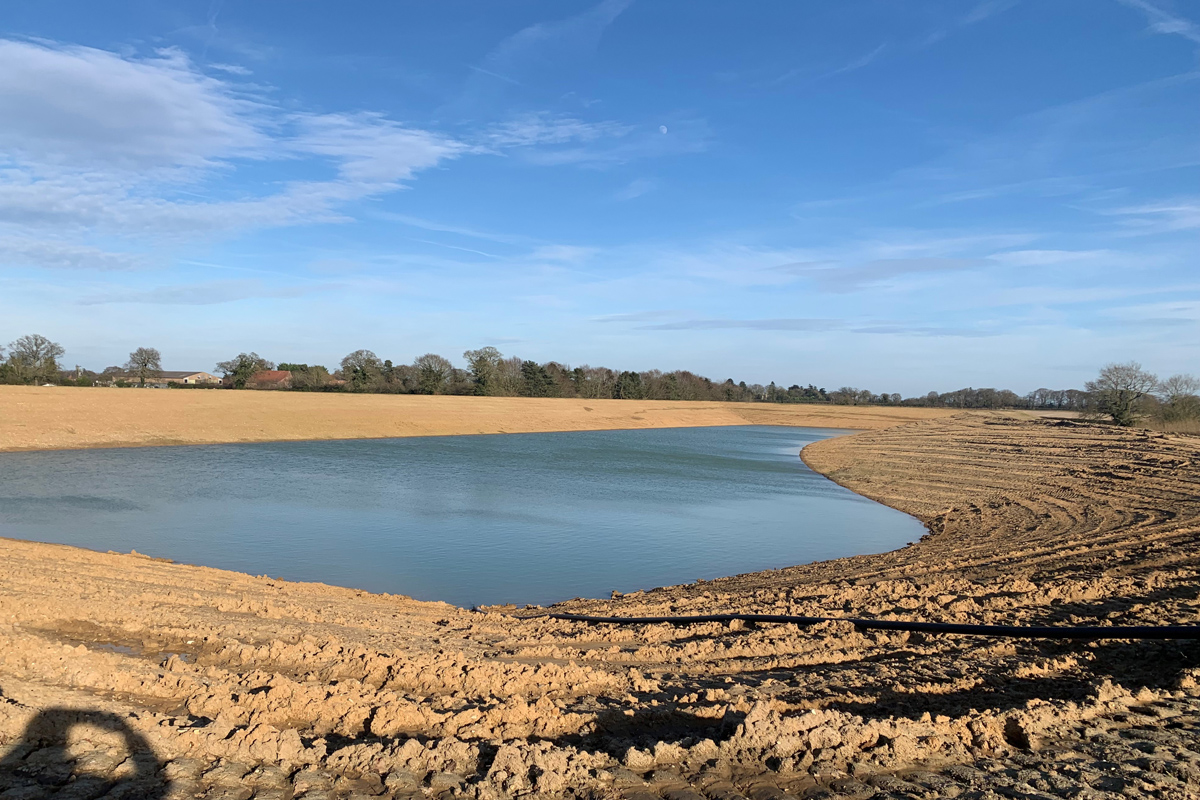
A £75,000 Farming in Protected Landscapes grant was awarded to a farmer in the Ant Valley to build a storage reservoir for irrigation of their soft fruit farm. The reservoir allows the farmer to store rainwater throughout the year for use in the summer months. Without the reservoir, the farm business would have been unable to continue with current operations. Abstraction licenses are being removed in the area in order to protect the Ant Broads and marshes, therefore the reservoir provides a source of irrigation during drier spells.
The reservoir can hold 150,000m3 of water and is supplemented by rain collected from the polytunnels on the farm. During periods of intense rainfall, the reservoir captures excess water and thereby reduces flood risk in the area. This also reduces agri-chemical run off into nearby water systems and in turn improves the water quality in the local ditch and stream system that runs into Barton Broad.
The reservoir also increases groundwater flow to the rivers, which will counteract future increases in saline intrusion as a result of climate change. In addition to this, the reservoir also increases wildlife habitat and biodiversity on the farm by providing a new area of connectivity. Subsequently, this project enhances the surrounding ecology of the Ant Broads and marshes both presently and in the future. The reservoir not only improves water resource for the farm, but also means that the farm will continue to produce British grown food and support a large workforce.
Farm Cluster Group
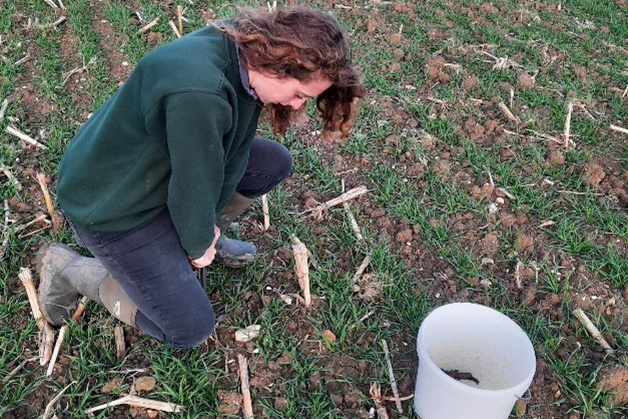
FiPL have funded a farm cluster group around the River Waveney on the Norfolk/Suffolk border to investigate how they can improve nutrient use on their farms. The project monitored nutrient use efficiency in select arable fields across multiple farms within the farm cluster (approx. 140 ha in total). The first year of the project received a grant of £7,512.83, and the second a grant of £7,462.96.
During the first year, the farmers monitored nutrients and organic matter in the soils, as well as taking monthly water samples from land drains to test for nitrates, phosphates, and turbidity. In the first few months of sampling, they found that heavy rain was resulting in large concentrations of nitrate in the land drains, which was leaching from the soil.
The first year of data collection was used to establish a baseline dataset alongside ‘normal’ farm management. The project was funded for a second year, whereby farmers continued to improve nutrient use in their test fields through measures such as cover crops, reducing fertiliser application, and reducing cultivation. The second year of the project saw the farmers improve nutrient use efficiency through optimising the precise timing and extent of nutrient application.
Improvements to nutrient use efficiency will reduce the levels of nitrates and phosphates entering the River Waveney, thereby improving the quality of aquatic habitat in the Broadland catchment. Any reductions in fertiliser use, without compromising yield, will also reduce carbon emissions and increase the resilience of the farm businesses. The group have continued this work with funding from other sources, which means that the great work of the project is continuing.
Somerton Mill cap refurbishment
A FiPL grant of £15,509 was awarded for the restoration of Somerton Mill cap. The mill is a Grade II Listed building that is free of charge for public use. It provides a unique opportunity to view both the Broads and Norfolk coastline, whilst visually understanding the landscape management of the area. The mill features a rare boat-shaped cap, and forms a distinctive landmark that contributes to the landscape and cultural heritage of the Broads.
The feather-edge boards on the exterior of the cap were rotten due to water ingress. The project funded their replacement with Siberian Larch feather-edge boards. The repair also included the painting of the timber using specialist materials that increase the longevity of the structure by protecting the mill from moisture. Consequently, this enables the Norfolk Wildlife Trust to continue to allow public access to the mill.
The funding ensured that a key historic structure in the Broads was restored, with efforts made to prevent future deterioration. By combining traditional millwright work with contemporary repair practices, the longevity of the mill’s use has been enriched. Consequently, the unique landscape of the Broads has been preserved and enhanced.
Country Trust Farm Visits
Since 2021, Farming in Protected Landscapes has funded educational farm visits for children in partnership with The Country Trust. The Trust provide inspiring, hands-on day visits to Hall Farm at Repps with Bastwick. Over the past two years, the Trust have facilitated 18 class visits with primary school children from disadvantaged communities from the Great Yarmouth and Norwich areas.
In preparation for the farm visits, FiPL funding also contributed to the development of the Trust’s ‘Farm in a Bag’ programme. This is a resource that teachers introduce to the class prior to the farm visit, which includes a video introduction of the farmer and sensory activities of the sounds and smells that they may expect to find on the farm. This allows the children to recognise the farmer on the day of their visit, as well as prepare any questions that they may have after the sensory stimulation activity.
The farm visits themselves provide an opportunity for children to learn how food is produced. The beehives on the farm enable discussion regarding the role of pollinators in producing food, and the children are able to taste local honey. The farmer shows the children how he encourages biodiversity on his farm, above ground with beetle banks and marsh management, and below ground in the soil. They are able to look for worms to investigate how the farmer is succeeding in improving his soil health.
As well as learning about food, the visits also offer an opportunity for children to enjoy and learn about the countryside. Walking around the farm gives the facilitators a great chance to talk about the Countryside Code and what signs children would look for if they return to the Broads. Being immersed in a farm is an opportunity to think about future career options amongst the children, as they see all the jobs that need to be done, from machine maintenance to technology, soil management, animal care, hedge laying and much more. They may just start to get an inkling of where their interests may lie and be encouraged to have aspiration.
This project had a 100% intervention rate and is for a total project cost of £13,678.16. This is split across two years, with £7,756.96 in year 2 and £5,921.2 in year 3. This includes the time from the Country Trust, transport subsidies for schools, and money to develop the 'farm in a bag' resource for the schools.
Fairhaven Garden dredging and accessible bridges
Farming in Protected Landscapes funding was awarded to Fairhaven Garden at South Walsham Broad for the construction of accessible bridges within the gardens. The project was two-fold, with the first phase being the dredging of the waterways, and the second phase being the construction of the bridges. FiPL funding contributed to improving the accessibility of the gardens through the implementation of 4 bridges.
The bridges are constructed using a steel framework and timber walkway to ensure stability and longevity. They sit on four steel vertical posts with lifting points to allow each bridge to be raised manually when required. This future proofs any maintenance or repairs, as well as provides flexibility for any additional dredging projects.
The dredging and construction of higher-arched bridges has allowed for the opening of a new area of navigable water space. This has enabled the facility to host new canoe trails around the botanical gardens which in turn generates additional attention and income that they can reinvest in the charity.
The paths and bridges themselves are now accessible to a diverse audience including mobility scooters and wheelchair users. This allows access to the gardens all year round without being dependent on the weather. In addition to the construction of the accessible bridges and walkways, the dredging work has also decreased the risk of flooding. Consequently the gardens are more accessible to a more diverse audience all year round.
Further information
For more information on the FiPL scheme and how you can apply please see our Farming in Protected Landscapes webpage.


